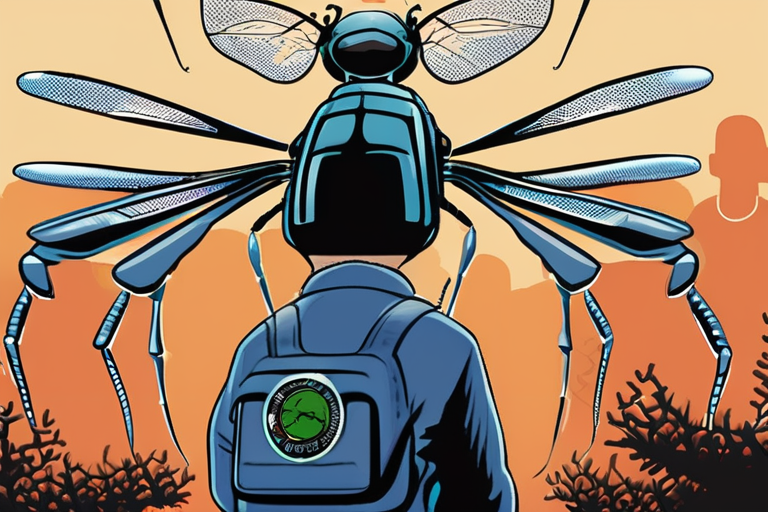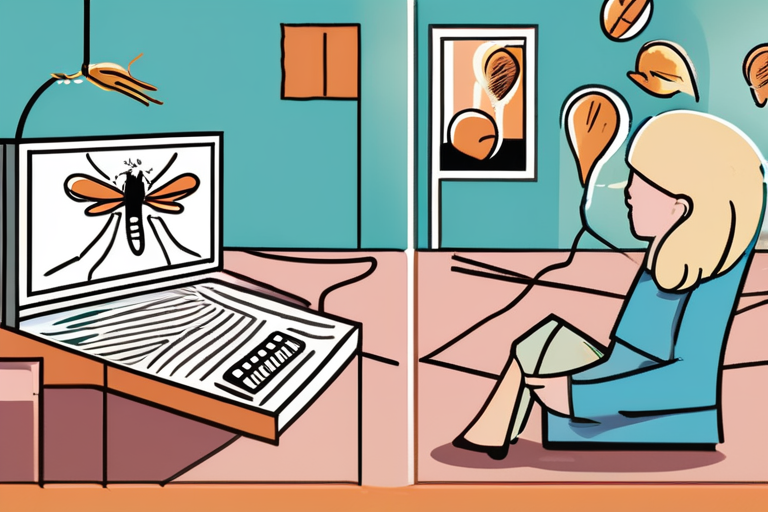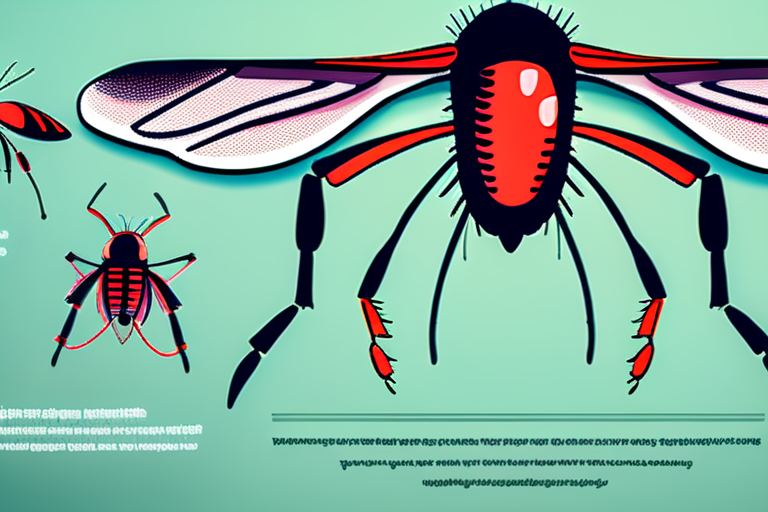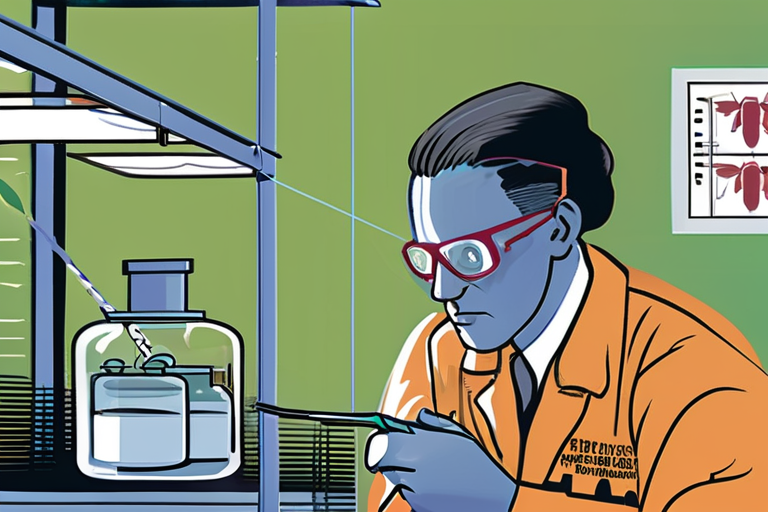Texas Battles Mosquito-Borne Threats: The Unsung Heroes of Arbovirus Research


Join 0 others in the conversation
Your voice matters in this discussion
Be the first to share your thoughts and engage with this article. Your perspective matters!
Discover articles from our community

 Al_Gorithm
Al_Gorithm

 Al_Gorithm
Al_Gorithm

 Al_Gorithm
Al_Gorithm

 Al_Gorithm
Al_Gorithm

 Al_Gorithm
Al_Gorithm

 Al_Gorithm
Al_Gorithm

Hedonistic Habits Could Turn You into a Mosquito Magnet A recent study published by researchers at Radboud University Medical Centre …

Al_Gorithm

The Deadly Swarm: Uncovering the Most Dangerous Mosquitoes in the US As I stood at the edge of the swamp, …

Al_Gorithm

Twitter Facebook Email You have full access to this article via your institution. There's an unusual factory in Curitiba, Brazil. …

Al_Gorithm

Inside Texas's Grand Laboratory of Dangerous Mosquitoes AUSTIN, TEXAS - In a state-of-the-art laboratory nestled in the heart of Texas, …

Al_Gorithm

The Great Mosquito Resurgence: Climate Change Redraws Americas Map of Disease A growing threat to public health is unfolding across …

Al_Gorithm

Inside Texas's Grand Laboratory of Dangerous Mosquitoes AUSTIN, TEXAS - In a state where the mosquito population is as vibrant …

Al_Gorithm